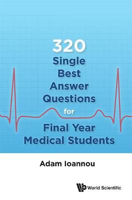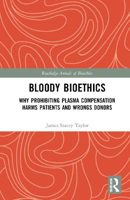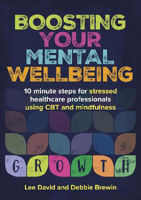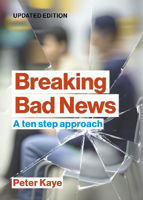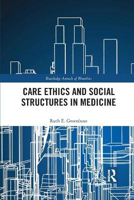Cookies help us deliver our services. By using our services, you agree to our use of cookies.
Shopping cart
Search
Medical profession
320 Single Best Answer Questions For Final Year Medical Students
€34.99
This book will appeal to candidates appearing for Final MB examinations in the UK and international students preparing for finals; but also has utility for allied healthcare professionals who will be examined in general internal medicine.
APPLIED ETHICS AND DECISION MAKING IN MENTAL HEALTH
€130.00
Applied Ethics and Decision Making in Mental Health covers professional issues and ethical decision making in an easy-to-read format, connecting ethical standards to real-life scenarios.
Bloody Bioethics: Why Prohibiting Plasma Compensation Harms Patients and Wrongs Donors
€168.75
This is the first book to argue in favor of paying people for their blood plasma. It does not merely argue that offering compensation to plasma donors is morally permissible. It argues that prohibiting donor compensation is morally wrong-and that it is wrong for all of the reasons that are offered against allowing donor compensation.
Body Talk in the Medical Humanities: Whose Language?
€61.25
This exciting book draws on the insight and experience of 21 medical practitioners and researchers in the wider field of the medical humanities to ask fundamental questions related to illness, bodily experience, the experience and role of medical and healthcare professionals, and the contribution of language and communication to enable understandin
Boosting Your Mental Wellbeing: 10 minute steps for stressed healthcare professionals using CBT and mindfulness
€26.24
This book offers simple practical advice on how to manage the stress and exhaustion that often come with working in primary care. The authors show how making small changes in key life areas can have a surprisingly significant impact on mood and can help improve our wellbeing, all in 10 minutes a day.
Breaking Bad News: A ten step approach
€11.24
Doctors and other healthcare professionals need to be able to impart bad news well. This book provides practical guidance to create a framework for discussions with the patient and their relatives, and will help doctors learn how to handle what is perceived as a particularly stressful part of the job.
Breathtaking: the UK's human story of Covid
€13.75
From the bestselling author of Dear Life, Breathtaking is a compassionate, heartbreaking and compelling account of an NHS doctor in the midst of the greatest public health crisis in living memory. With a new introduction from Michael Rosen
Care Ethics and Social Structures in Medicine
€50.00
This book examines the central structures in medicine-medical knowledge, economics, technological innovation, and medical authority-from the perspective of an ethics of care. The author analyzes each of these structures in detail before considering the challenges they present to end of life care.
Choosing Children: Genes, Disability, and Design
€37.50
Genetic and reproductive technology now offers us the possibility of choosing what kinds of children we do and don't have. Should we welcome this power, or should we fear its implications? The renowned moral philosopher and best-selling author Jonathan Glover suggests how we should try to deal with this urgent problem.

